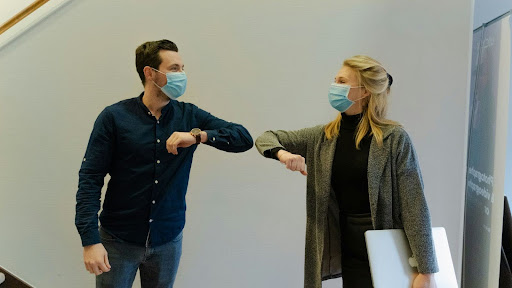Business
The Aftermath of The Great Resignation in Today’s Job Market

The job market witnessed an unprecedented phenomenon in 2022, aptly named “The Great Resignation.” Millions of professionals left their jobs, opting for new careers or a break from traditional employment. This mass exodus from the workforce, driven by various factors, significantly reshaped the employment landscape and introduced new challenges and opportunities for both employees and employers.
According to a report by CNBC, 2022 was marked by a record number of resignations. Employees were motivated by a combination of burnout, the desire for better work-life balance, and the search for more meaningful and fulfilling work. The COVID-19 pandemic acted as a catalyst, prompting many to reassess their career goals and life priorities. As remote work became the norm, individuals realized the feasibility of working from anywhere, further fueling the desire for change.
Meanwhile, BBC highlighted that while the peak of The Great Resignation has passed, its impact continues to reverberate through the job market. Employers are now dealing with a transformed workforce with different expectations and demands. Companies that fail to adapt to these changes risk losing talent to more agile and flexible competitors.
One of the most significant shifts brought about by The Great Resignation is the evolving nature of job interviews. As noted by A.J. Mizes, CEO and Founder of The Human Reach, Having 3, 4, or even 5 interview rounds is not unheard of these days, which sounds crazy. The traditional in-person interview has largely been replaced by online interviews, adding a new layer of complexity for job seekers, especially those who haven’t interviewed in over a decade.
Mizes offers valuable advice for executives navigating the modern job market. His first tip emphasizes the importance of viewing interviews as dialogues rather than interrogations. Engaging with the interviewer, asking insightful questions, and showing genuine interest in the role and company can create a more favorable impression. “Get the interviewer to tell stories instead of just answering in generalities,” Mizes suggests.
Confidence plays a crucial role in standing out during the interview process. Mizes points out that while many candidates may have similar qualifications, confidence and personality can set one apart. Showcasing achievements with pride and letting unique strengths shine through can leave a lasting impression. He also highlights the importance of embracing behavioral interview techniques, preparing responses that demonstrate problem-solving skills and effective management of challenges using the SOAR (Situation, Obstacle, Action, Result) method.
The Human Reach specializes in helping professionals navigate these new interview landscapes and career challenges. Their Career Search Strategy program aims to equip individuals with the tools and strategies needed to advance in their careers, reflecting the broader trend of professionals seeking guidance and support during this transformative period.
The impact of The Great Resignation extends beyond individual job seekers to the broader business environment. Companies are now tasked with creating more supportive, flexible, and engaging work environments to retain talent. This includes offering remote or hybrid work options, investing in employee development, and fostering a culture that prioritizes work-life balance and mental well-being.
As businesses adapt to these new realities, HR consulting and leadership development services are becoming increasingly vital. These services help organizations design effective talent management strategies, develop robust employee engagement programs, and ensure that leaders are equipped to navigate the complexities of the modern workforce. By prioritizing these areas, companies can create a more resilient and adaptable workforce capable of thriving in a post-pandemic world.
The Great Resignation of 2022 was a pivotal moment in the job market, prompting millions to reassess their careers and seek new opportunities. As we move forward, the lessons learned from this period will continue to shape the employment landscape. Career and executive coaching, HR consulting, and leadership development services will play crucial roles in helping both individuals and organizations adapt to these changes, ensuring long-term success and fulfillment in an ever-evolving job market.
-

 Business6 days ago
Business6 days agoS&P 500 Soars in Best May in Decades Amid Tariff Relief and Nvidia’s Surge
-

 Immigration6 days ago
Immigration6 days agoTrump’s Immigration Crackdown: Legal Battles and Policy Shifts
-

 Business6 days ago
Business6 days agoUS Stock Market Soars in May Amidst Tariff Tensions and Inflation Worries
-

 Government6 days ago
Government6 days agoTrump Administration’s Government Reshaping Efforts Face Criticism and Legal Battles
-

 Business6 days ago
Business6 days agoTrump’s Tariffs: A Global Economic Reckoning
-

 Foreign Policy3 days ago
Foreign Policy3 days agoInside Schedule F: Will Trump’s Federal Workforce Shake-Up Undermine Democracy?
-

 Press Release3 days ago
Press Release3 days agoIn2space Launches Campaign to Make Space Travel Accessible for All











